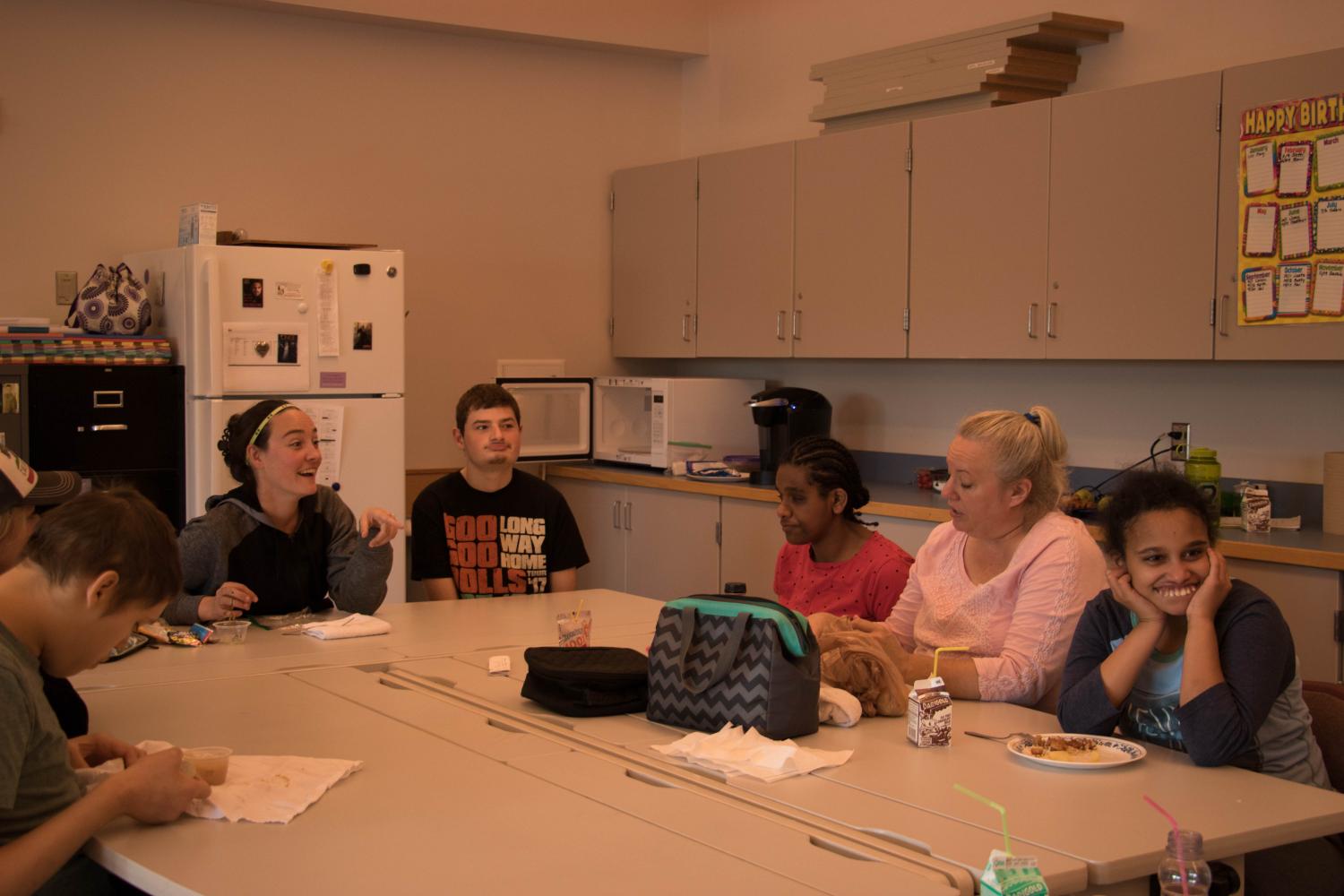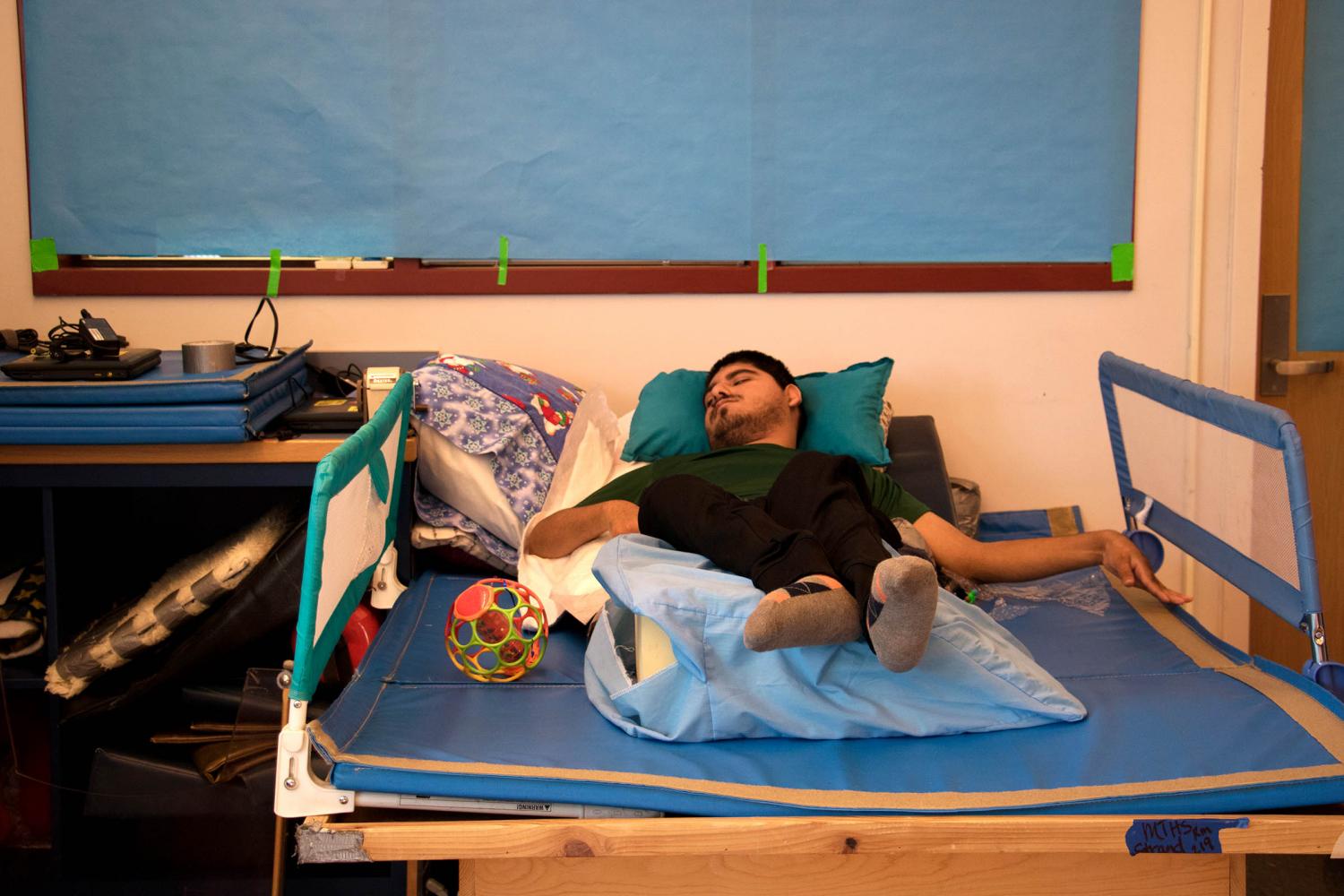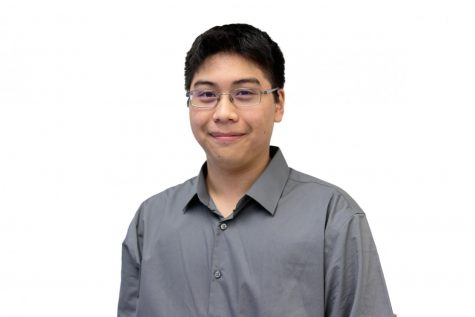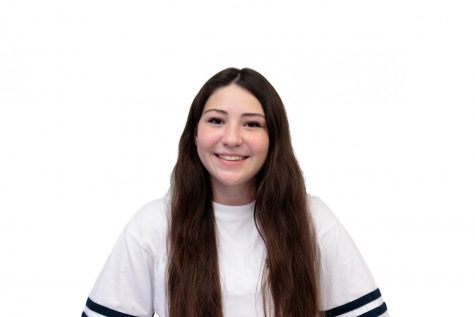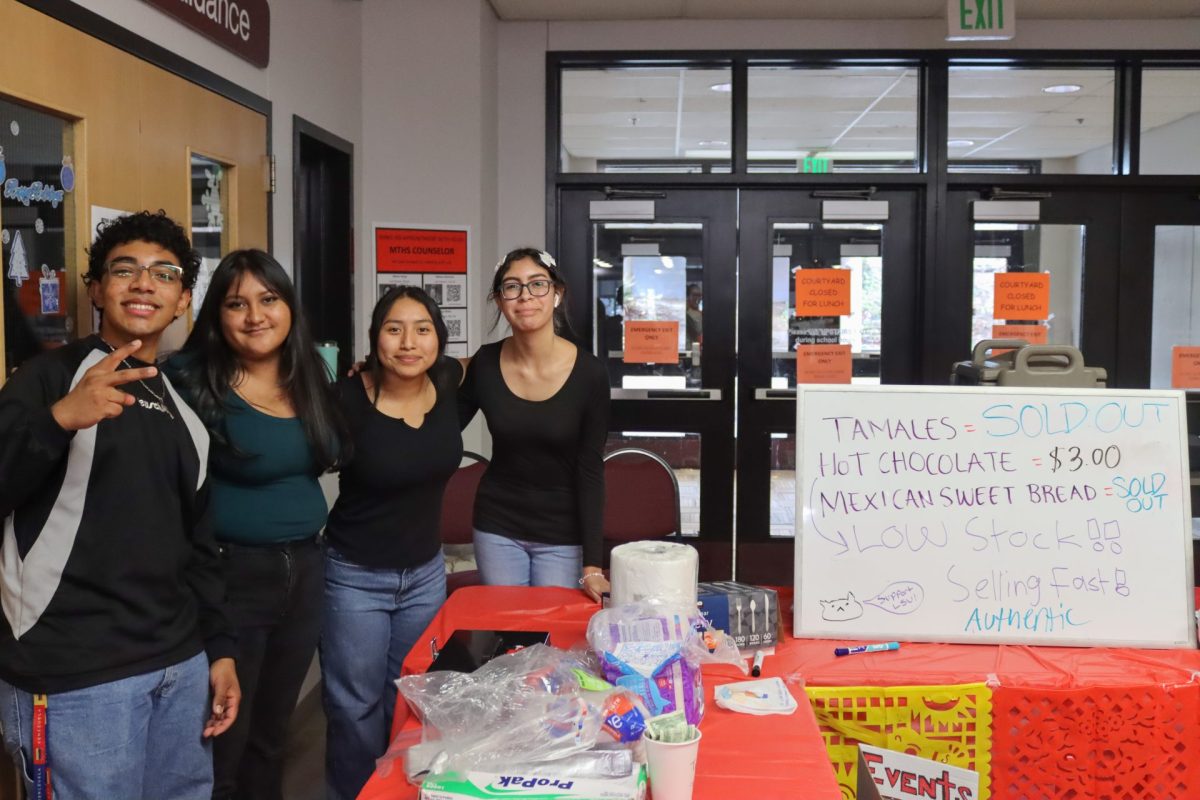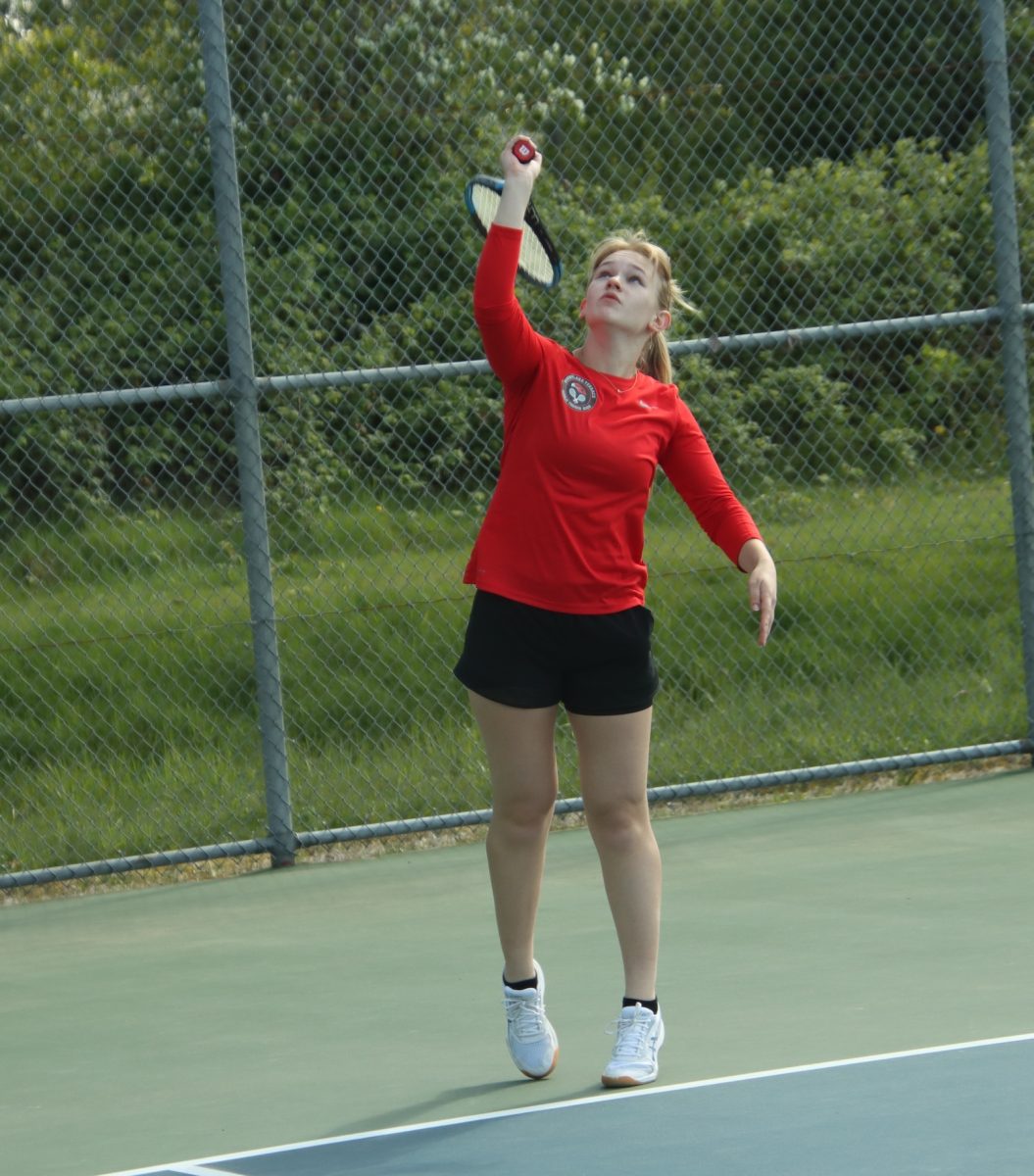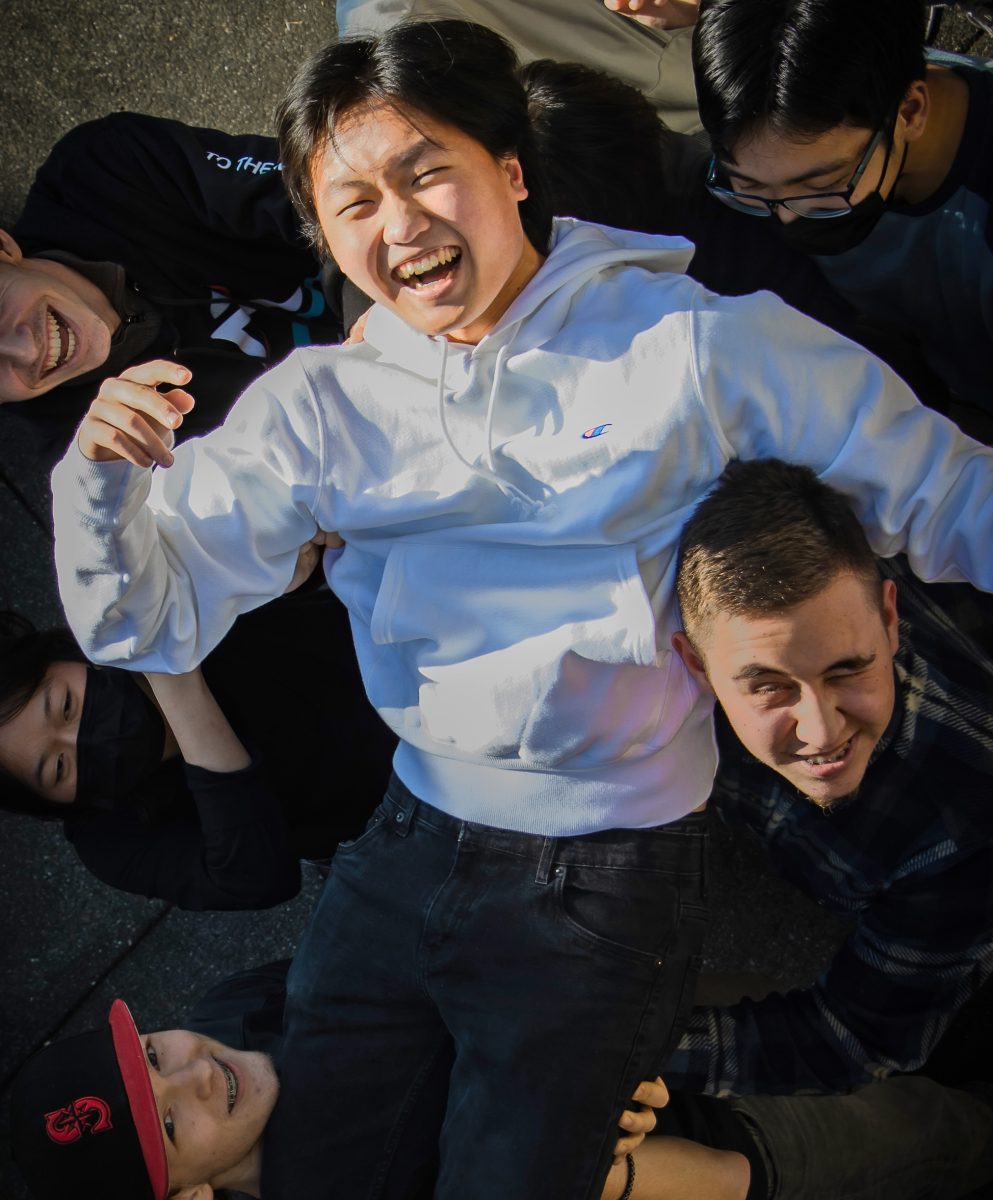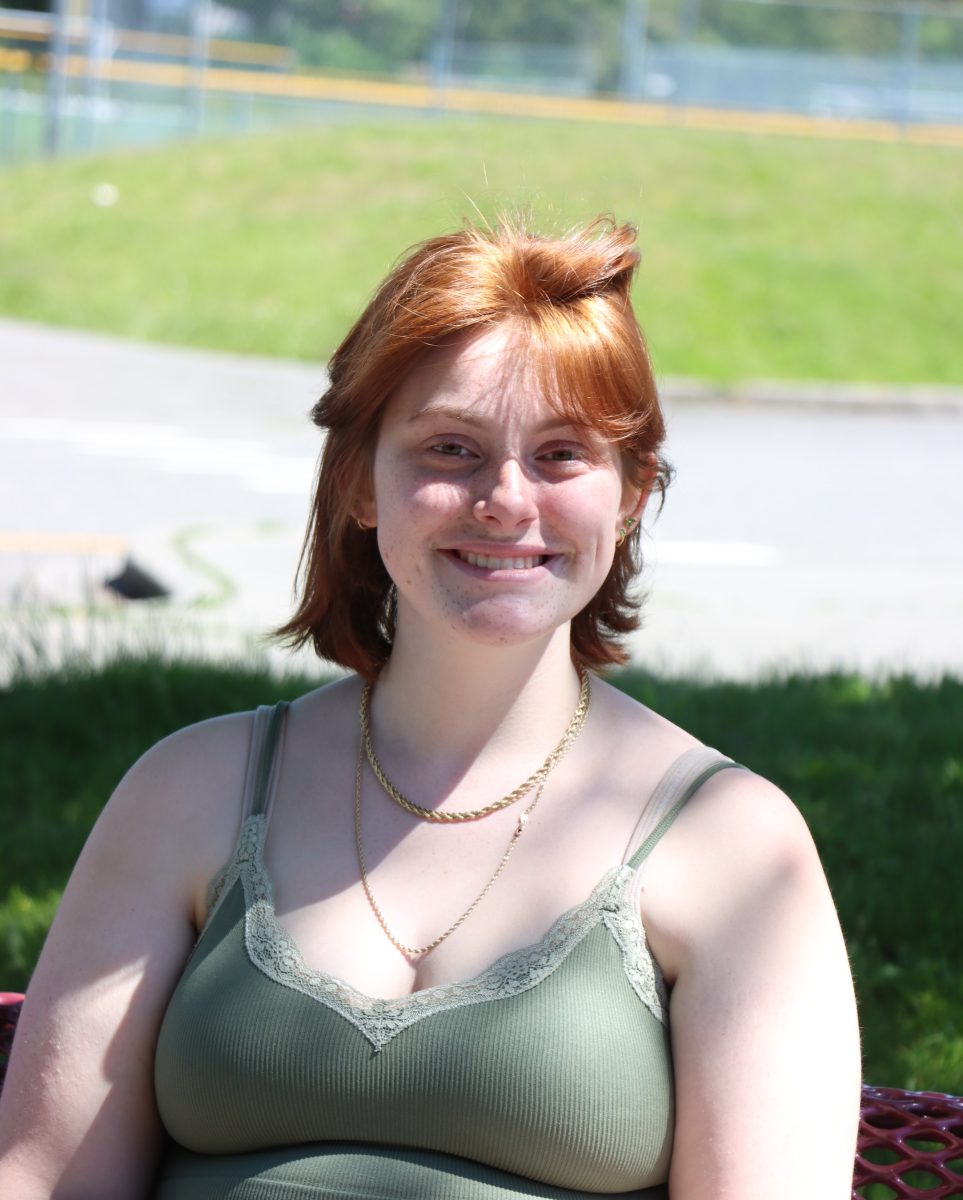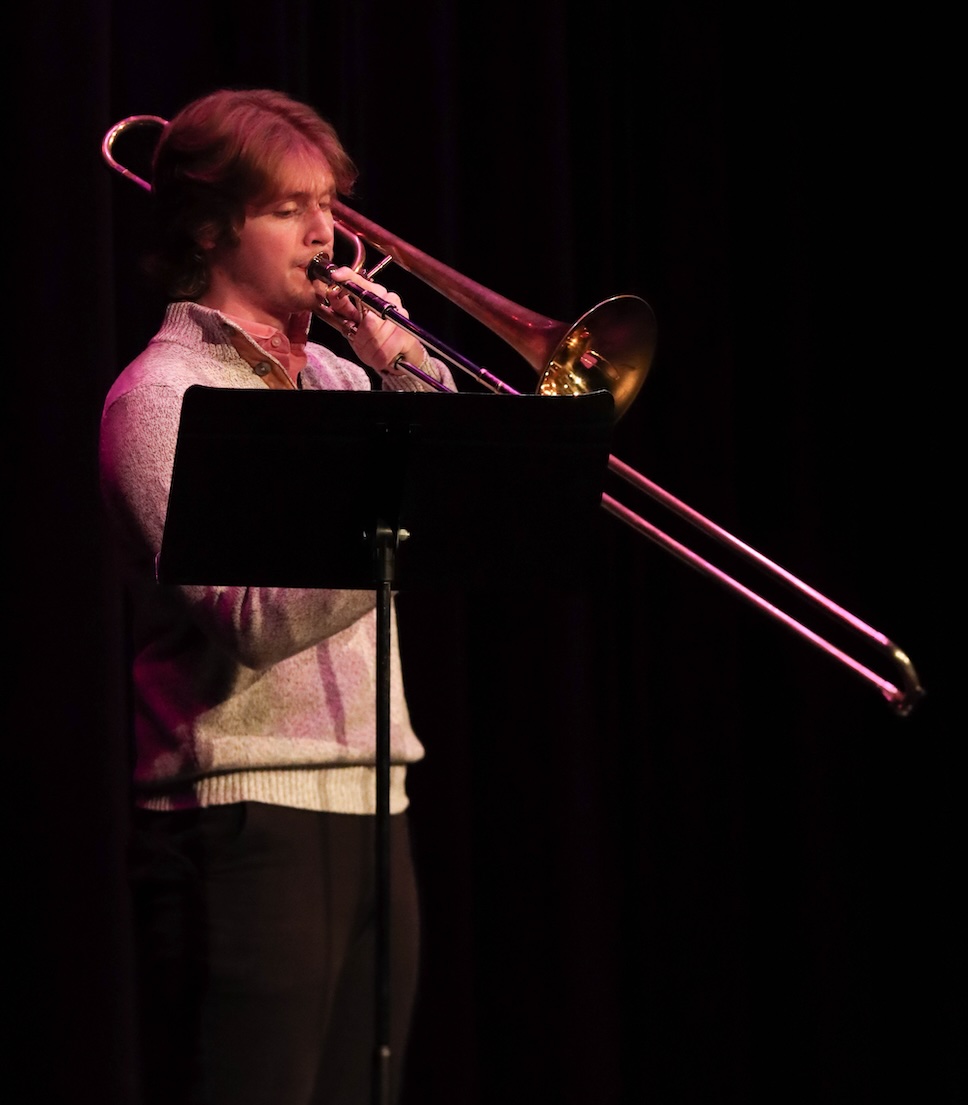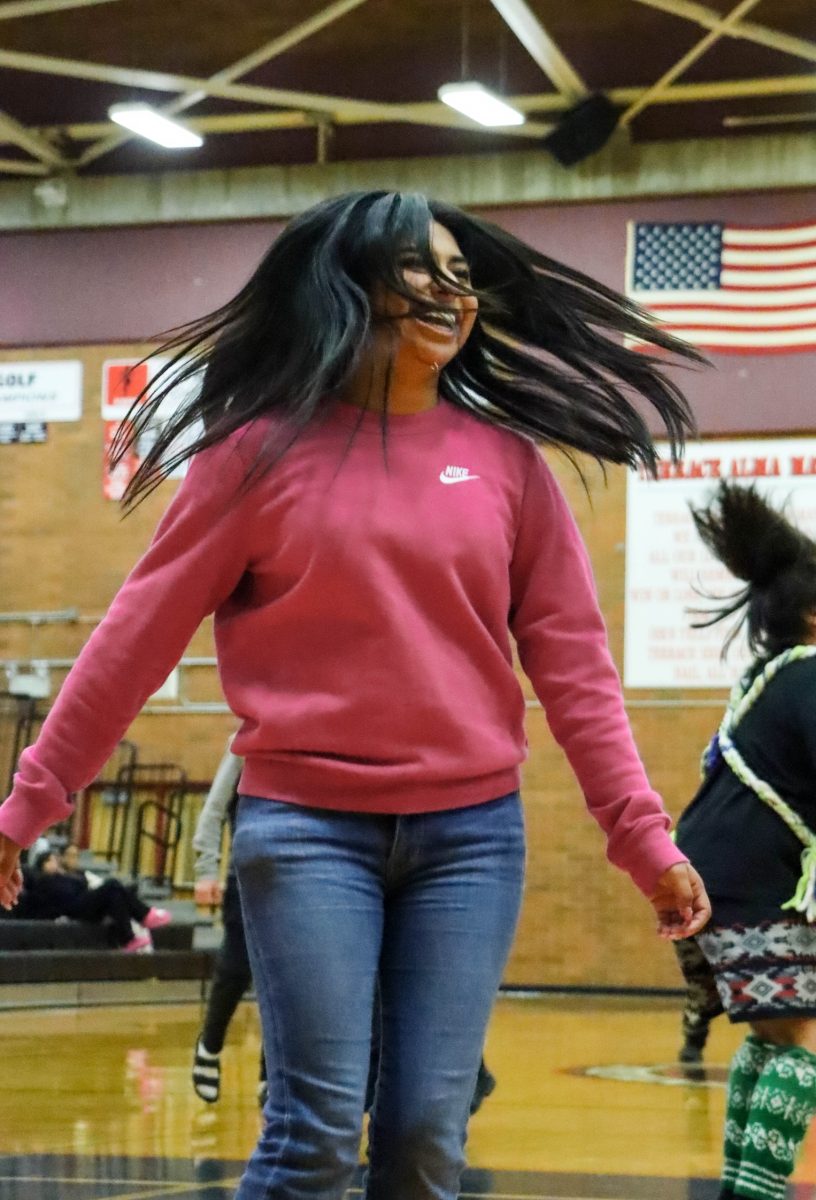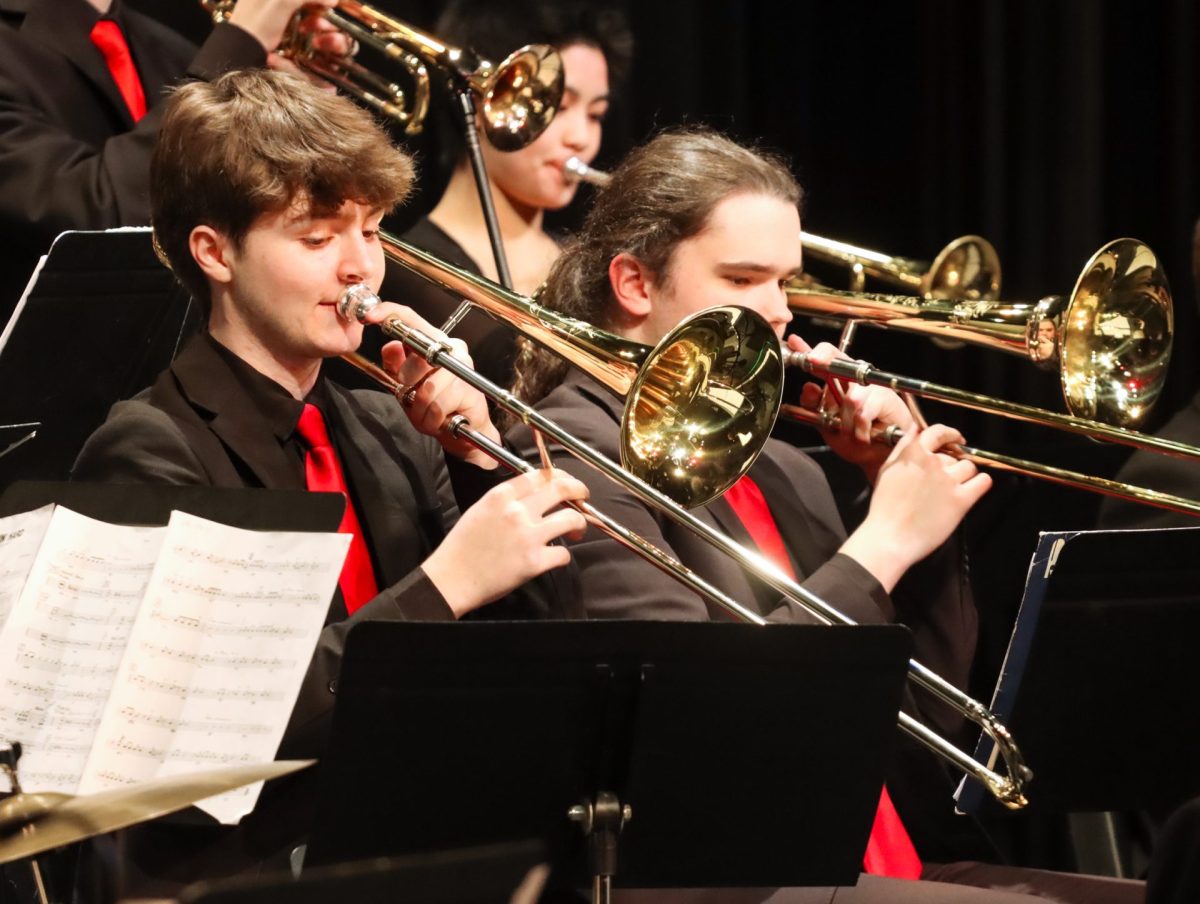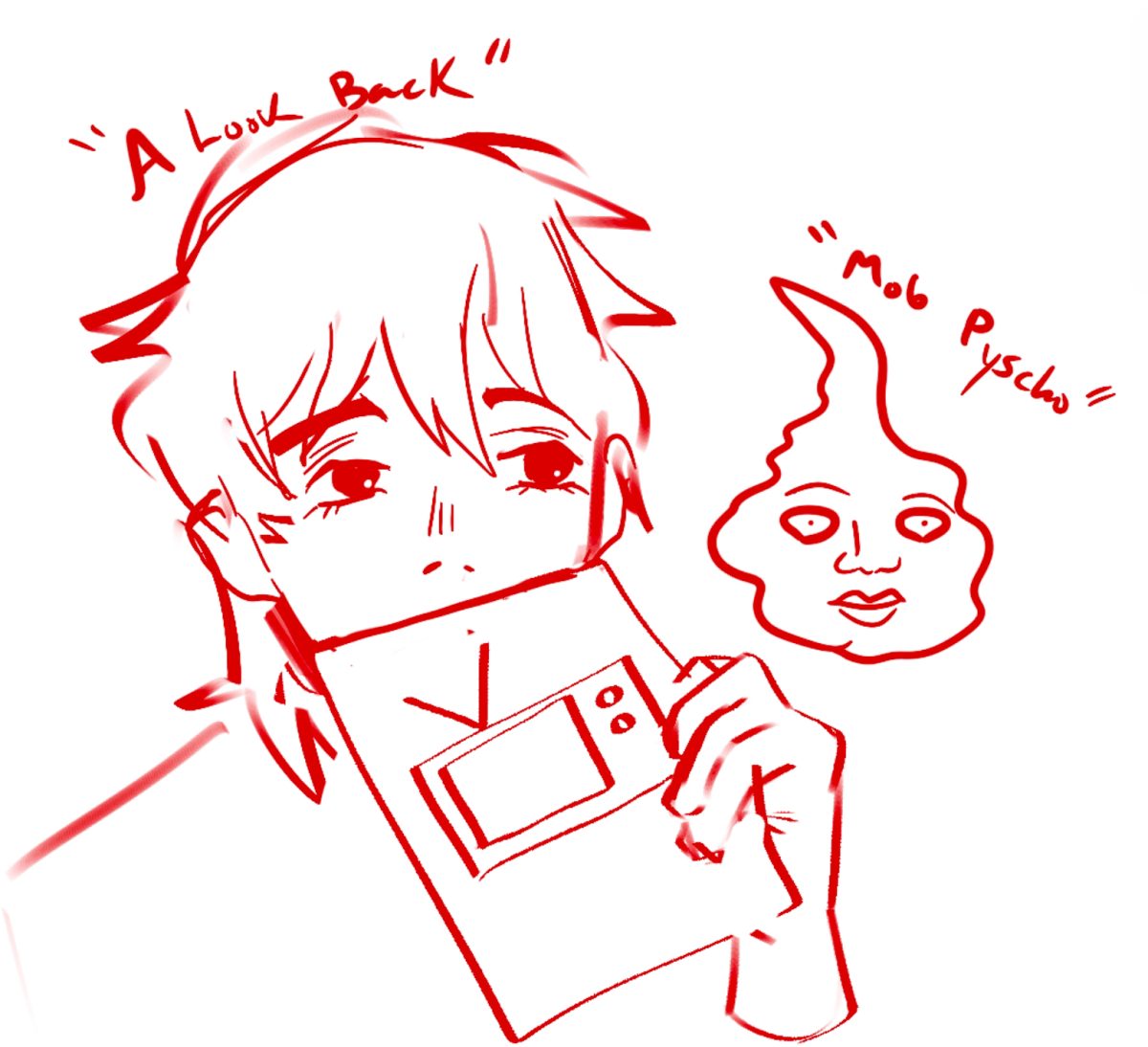With a new year comes new teachers, students, plans, facilities — and this year, a new program. The room adjacent to the library is no longer the “LibLab” (computer lab), but is instead a classroom for students with physical, cognitive, and communicative disabilities.
The room formerly known as the LibLab now houses the Life Skills program, which is a program providing educational opportunities to students with disabilities that would otherwise inhibit their ability, according to Title IB (614) of the Individuals with Disabilities Education Act, to be “educated and participate with other children with disabilities and non-disabled children.”
The program used to be housed at the purpose-built Maplewood Center building, which has for several years co-housed the Maplewood Co-op K-8, and will continue to house the Life Skills program for K-8 students alongside conventional K-8 classes. The teenaged students were moved to MTHS in order to place them among peers their own age.
In charge of this space is Life Skills teacher Sarah Strand, who is new to Terrace, but not to the Life Skills program. Teaching these students, Strand said, is her passion. Despite the presence of dedicated facilities, teachers and opportunities, Strand believes the most important component of these students’ educations is the way they interact with other students.
“I think awareness is the biggest thing,” she said. “Our population is so small within this world. You do not see so many people with these types of disabilities.”
The new room is hardly reminiscent of the old LibLab. The rows of computers have been removed, as have the small metal wire enclosures. Much of the wall space has been covered up by cabinets. In the cabinets are devices, such as switches. “There’s all different types of switches,” Strand explained. “There’s a voice recording one, so whenever the button is pushed, there’s a voice output that comes out. For example, a student may really like a song or a sound, and so when we hit it it makes the sound and they think it’s hilarious.” They can also be synchronized to toys, such as a remote control school bus. The switches come in various sizes, from the 5 inch BIGmack™, to the 2.5 inch LITTLEmack™, and also in various styles.
Another small section of the wall is devoted to cubbies for students. A divider denotes a section of the room that houses Strand’s desk, as well as a small portion of the room that houses several “study corrals”. A fridge stands in one of the corners. The bathroom has been renovated to accommodate students in wheelchairs and other students with physical disabilities. The computer tables have been removed, save for three, which are arranged in a cluster in one corner.
The lights, which were previously white like the lights in other classrooms, are now partially filtered red to cater to students who are sensitive to bright lights. Study corrals, which are plain white desks with walls on the side, have been established to provide a workspace with minimal distractions. The room has been filled with “adaptive furniture”, like supportive chairs and mattress tables, which is furniture designed to aid people with disabilities, such as quadriplegia. In the corner are stacks of foam wedges and cylinders to comfortably position students who cannot position themselves.
The new space doesn’t look like a traditional classroom. There are no textbooks, no tests, no Chromebooks. The whiteboard doesn’t have key dates in history or mathematical formulas. Instead of notes, the desks are filled with small objects and toys. Despite this, the Life Skills room is a place for learning. The curriculum during the school day, which runs from 7:00 a.m. to 1:20 p.m, involves “vocational tasks”, which are designed to improve a student’s fine motor skills. These tasks include sorting forks, spoons and knives, and matching number tiles.
The goal, says Strand, is to ensure that students’ fine motor skills are at a sufficient level to be able to do simple tasks at a job — such as doing dishes at a restaurant. She recalls working at a grocery store in college with a disabled co-worker, who, together with a job coach, worked stacking gum on the store’s shelves.
The move from a building which was purpose-built to house Life Skills students was not one without hiccups. According to Strand, there are some changes that could still stand to be made.
“I would lower the ceilings so we can hang our artwork from there and make it less like a warehouse. There are students on their beds, and they look up all the time and last year we had a lot of things hanging from the walls that are just fun to look at. Now it’s like they’re looking at Costco ceilings,” Strand said.
Also on her wish-list is increased wall space — something that was in abundant supply at the old building due to the odd shape of the room. According to her, it is also difficult to transport students in the morning due to the earlier schedule at Terrace. At Maplewood, being a K-8 meant that the students started around 8 a.m. Now, according to Strand, some students have to get up around 4 a.m. in order to get ready for school at 7 a.m – something very difficult for some students who go to bed very late at night.
Additionally, Terrace lacks some of the amenities that were present at Maplewood. For example, Maplewood had a therapy pool for physical therapy, which Terrace doesn’t have. Terrace also does not have an automatic front door, which adds difficulty in trying to arrange transport for the wheelchair-bound students who need them the most.
Despite this, Strand said that so far, her time at Terrace has been pleasant.
“It’s hard to say [whether the space here is better than the space at Maplewood], but I don’t dislike it,” Strand said. “We’ve made it work. As the year goes on, and as the years go on, it’s going to be a great space.”
Of the room itself, she said “it’s more open. The room that we were in [at the co-op] — this [room at Terrace] is basically just a rectangle, whereas in the other room we had more wall space and it was angled different ways. Think of Tetris.”
For students who want to help Life Skills students, Mrs. Weaver in room (229) runs a peer mentoring program during second period. Among the things a student in the peer mentoring program might do would be to go on a walk with the students. The peer mentors also read children’s books such as The Little Mermaid and 101 Dalmations to students in groups of up to four. Students can also come in during PASS and lunch. “We’re a revolving door,” said Strand. But, she says, the best way to help these students is to be their friend.
“Yeah, we’re different. We look different. We act different. We talk different. But we’re still people, and we still have emotions. The personalities are just phenomenal when you get to know us.” Just because these students have disabilities, Strand said, doesn’t mean they don’t know anything. She talked about a nonverbal student who, bursts out laughing upon hearing an extremely “dirty” joke. “You know she has street smarts,” Strand said.
Strand said that despite disabilities that make them appear different, these students only want to be part of the Terrace community. “I know it’s going to be off-putting to see these students because of their physical disabilities, or because their verbal skills are different, but they want to be your friend. The biggest thing is that we want to be included. And that’s why we’re here.”
According to her, the presence of the peer mentors has made a very positive impact on the students. “They’re already making friends with everyone. [The students here] are different from everyone. It’s getting to learn how awesome they really are, that just because they have a severe disability doesn’t mean they’re not fun. At first, they were very hesitant, but now, they just jump right in. We read or we do tasks together.”
She says that students like hers are few and far between in the world. According to her, it’s not every day you see a blind person, or someone with physical disability unable to look towards you or unable to move their wheelchair, even with the aid of an electronic joystick. “All of these things you don’t see when you’re going to the mall or going to the movies or anywhere. It’s very rare you see students like ours. It’s very important for people to know all different types of people. Disabilities do not discriminate.”
“My favorite quote is from Temple Grandin,” Strand said. “And she says, ‘We’re different, not less.’ And that’s exactly how I feel.”


